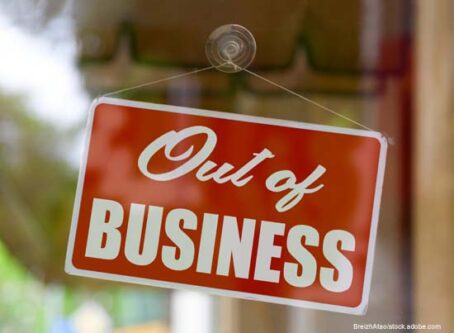Arizona, Washington state lawmakers look to deter highway protests
State lawmakers in multiple states have introduced legislation to address concerns about highway protests that disrupt traffic. Federal legislation also tackles the topic.
In recent years, at least a half-dozen states have acted to adopt rules that are intended to deter highway protests.
South Dakota and Tennessee were at the forefront of addressing concerns about people blocking busy roadways. The South Dakota law set the punishment for standing on a highway to block traffic at one year in jail and/or $2,000 in fines. The Tennessee rule quadrupled the state’s possible fine for obstructing a roadway from $50 to $200.
Texas soon thereafter enacted a rule that closely followed Tennessee’s action. Additionally, a Florida law states that protesters who “willfully obstruct the free, convenient and normal use of a public street, highway or road” will face prison time.
Elsewhere, state lawmakers in Iowa and Oklahoma approved rules to provide civil immunity in certain instances for drivers of vehicles who injure someone blocking traffic.
Advocates say efforts to keep protests off busy roadways are a common-sense way to help ensure public safety. Critics, including the American Civil Liberties Union, view efforts to punish protesters as violations of the First Amendment.
Washington
Two bills in the Washington statehouse address highway protests.
A bipartisan House bill with 40 co-sponsors is intended to bring a permanent end to highway blockades “that endanger lives, cripple commutes and undermine law and order.”
The pursuits follow a protest early this month that shut down Interstate 5 in Seattle for five hours.
Rep. Andrew Barkis, R-Olympia, is the lead sponsor of a bill that would inflict tougher penalties on people taking part in such activities.
Specifically, his bill would create a gross misdemeanor offense, punishable by fines and/or jail time, for individuals who, acting with three or more people, block traffic on a state highway without legal authority.
Offenders would face possible felony charges if the obstruction is determined to have created a risk of injury or impeded an ambulance, or if the individuals refused to disperse upon lawful order.
“It is time to reclaim our roads and send a clear message to those who wantonly break the law and endanger others,” Barkis said in prepared remarks. “We will enforce the law and hold people accountable for making their fellow citizens suffer.”
HB2358 is in the House Community Safety, Justice and Reentry Committee.
A Senate highway protests bill would make it a Class C felony for anyone who does not disperse from a public roadway when instructed to do so.
“Every person has the right to peacefully protest on whatever issue they feel passionately about, but they do not have the right to infringe on others’ rights, including the ability to travel freely,” stated Sen. Drew MacEwen, R-Shelton.
Addressing the recent I-5 protest, Washington State Police Chief John Batiste said, “Civil disobedience is an important feature of democracy, but it comes with accountability.”
SB6160 is in the Senate Law and Justice Committee.
The below statement has been released on behalf of Washington State Patrol Chief John R. Batiste. pic.twitter.com/FyOckRgSir
— WA State Patrol (@wastatepatrol) January 11, 2024
Arizona
One Arizona Senate bill also addresses concern about highway protests.
State law now classifies blocking traffic to create an “inconvenience or hazard” as a Class 2 misdemeanor punishable by up to four months behind bars.
Sen. John Kavanagh, R-Fountain Hills, is a former Port Authority of New York and New Jersey police officer. He is behind a bill that is intended to further deter the illegal activity.
SB1073 states that after receiving a verbal warning to desist, any individuals who intentionally interfere with passage on a highway, bridge or tunnel or any roadway leading to or from an airport holding at least 25 vehicles would face a Class 6 felony charge.
The felony charge could result in fines, probation or up to six years in prison.
The bill is in the Senate Judiciary Committee.
Federal legislation on topic
In addition to statehouse pursuits, a federal effort to curb highway protests is also underway.
Rep. Chuck Edwards, R-N.C., has introduced a bill to make intentionally obstructing, delaying or affecting commerce by blocking a public road or highway a federal crime.
Offenders would face up to five years of imprisonment. LL









